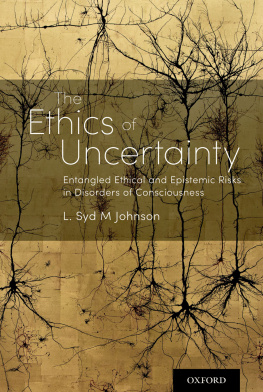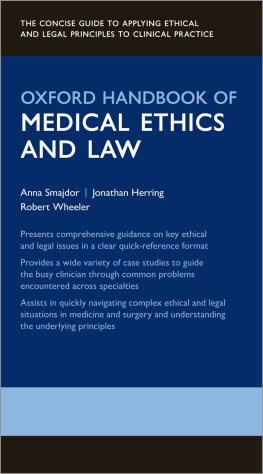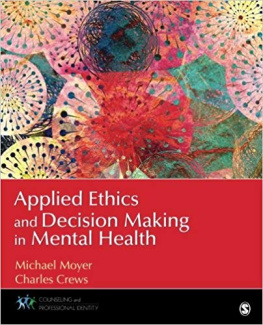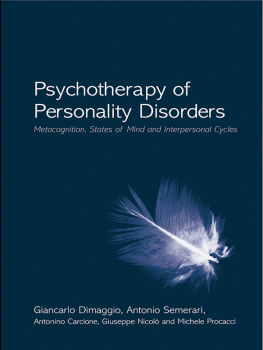Oxford
Handbooks
in Philosophy
and Psychiatry
Series editors : K.W.M. Fulford , Lisa Bortolotti , Matthew R. Broome , Katherine Morris , John Z. Sadler , and Giovanni Stanghellini
Volumes in the Series:
The Oxford Handbook of Philosophy and Psychiatry
Edited by K.W.M. Fulford, Martin Davies, Richard Gipps, George Graham, John Sadler, Giovanni Stanghellini, and Tim Thornton
The Oxford Handbook of Psychiatric Ethics
Edited by John Z. Sadler, Werdie (C.W.) Van Staden, and K.W.M. Fulford
The Oxford Handbook of Philosophy and Psychoanalysis
Edited by Richard Gipps and Michael Lacewing
The Oxford Handbook of Phenomenological Psychopathology
Edited by Giovanni Stanghellini, Matthew R. Broome, Anthony Vincent Fernandez, Paolo Fusar-Poli, Andrea Raballo, and Ren Rosfort
The Oxford Handbook of Psychotherapy Ethics
Edited by Manuel Trachsel, Jens Gaab, Nikola Biller-Andorno, erife Tekin, and John Z. Sadler

Great Clarendon Street, Oxford, ox 2 6 dp , United Kingdom
Oxford University Press is a department of the University of Oxford. It furthers the Universitys objective of excellence in research, scholarship, and education by publishing worldwide. Oxford is a registered trade mark of Oxford University Press in the UK and in certain other countries
Oxford University Press 2021
The moral rights of the authors have been asserted
First Edition published in 2021
Impression: 1
All rights reserved. No part of this publication may be reproduced, stored in a retrieval system, or transmitted, in any form or by any means, without the prior permission in writing of Oxford University Press, or as expressly permitted by law, by licence or under terms agreed with the appropriate reprographics rights organization. Enquiries concerning reproduction outside the scope of the above should be sent to the Rights Department, Oxford University Press, at the address above
You must not circulate this work in any other form and you must impose this same condition on any acquirer
Published in the United States of America by Oxford University Press
198 Madison Avenue, New York, NY 10016, United States of America
British Library Cataloguing in Publication Data
Data available
Library of Congress Control Number: 2020952081
ISBN 9780198817338
ebook ISBN 9780192549495
Printed and bound in the UK by
TJ Books Limited
Links to third party websites are provided by Oxford in good faith and for information only. Oxford disclaims any responsibility for the materials contained in any third party website referenced in this work.
To all those who seek help and support through psychotherapy, and to those who seek to provide it to the best of their knowledge and ability.
Foreword
Bruce E. Wampold, Ph.D. Madison, WI, USA
Professor Emeritus, University of WisconsinMadison and Senior Researcher, Research Institute, Modum Bad Psychiatric Center, Vikersund, Norway
In an evidence-based world, the emphasis in health services is on finding the most effective treatment for a particular disorder. In the latest iteration of the application of evidence to improve health, the notion of personalized medicine has been introduced, turning the focus on what is the most effective treatment for this particular patient with this particular disorder. In many ways this has been a technological endeavor, with attempts to increase longevity by days, it seems, and mortality by minute percentages. In this technological effort to make incremental advances by focusing on treatments, or even for treatments for individual patients, the patient and their context are secondary, if not ignored. Lip service is paid to patient preferences and the psycho and social aspects of the biopsychosocial, but the person as an agentic participant is too frequently ignored.
If health service is to retain the essence of healing practices, with a respect for the patient, health care ethics must be central to all aspects of health systems. Ethical considerations are not simply add-ons to satisfy societys demands for such servicesrather they should be endemic to the study of services, to the training of clinicians, to the delivery of services, to the evaluation of qualityall aspects of health services must be saturated with a consideration of ethics. This is an imperative for an effective health care systemone that not only demonstrates caring and respect for the patient, but one that is sustainable, is utilized by those who need services, and effective. Too many mistakes in health care have been committed by ignoring ethics.
Much has been written about ethics generally and, despite the focus on treatments, in health care specifically. Indeed, there is a name for the field in health carebioethics. There are bioethics academic programs (usually in medical schools), graduate degrees, and professors of bioethics. There is a plethora of experts to comment on thorny problems in bioethics that are raised in public.
Although bioethics is ubiquitous, the ethics of psychotherapy is neglected. This is quite surprising, and frankly disturbing, because the practice of psychotherapy raises ethical issues by its very nature. Psychotherapy is an intimate relationship between two persons but a very specialized oneand this raises a host of ethical issues. Moreover, each type of therapy creates a different type of relating. In each, the therapist takes a different stance.
The psychotherapy field desperately needs a comprehensive volume dedicated to psychotherapy ethics. The editors of The Oxford Handbook of Psychotherapy Ethics xManuel Trachsel, Jens Gaab, erife Tekin, Nikola Biller-Andorno, and John Z. Sadler, collectively have thought and written about this subject to a greater extent that the remainder of the field, most likely. The volume they have created and edited covers the ground comprehensively, with sections and topics as follows:
Why Ethics Matter in Psychotherapy
The Historical Context
Concepts and Theories for Psychotherapy Ethics
Common Ethical Challenges in Psychotherapy
Ethical Issues with Specific Psychotherapy Approaches
Ethical Challenges of Specific Settings and Populations
Ethics of Psychotherapy Education, Training, Quality Assurance, and Research
This volume is a must read for everyone in the psychotherapy field: clinicians, educators, trainees, researchers, policy makers, and managers of mental health care. Unless this material is read and understood, we are flying blind when it comes to becoming ethical professionals.
Acknowledgements
An Oxford Handbook requires strong leadership as well as an integrated, smoothly functioning team. We, the editors, have enjoyed both of these through the support Oxford University Press has provided. Senior Commissioning Editor Martin Baum has provided steady guidance, extraordinary liberty of content, and practical wisdom for each step in developing the Oxford Handbook of Psychotherapy Ethics. Senior Assistant Commissioning Editor Charlotte Holloway provided prompt and thorough assistance in every practical detail and question we could send her way, with encouragement and cheer. Were also grateful to Assistant Commissioning Editor Janine Fisher for stepping in for Charlotte when the demands of a growing family pulled her away from us. We thank Project Manager Sandhiya Purushothaman and Senior Project Manager Ramani Venkatesan from SPi Global for their guidance in the production stage of the manuscripts. We are much obliged to the authors of the









